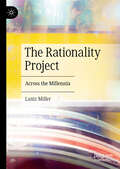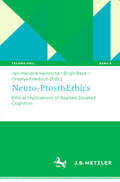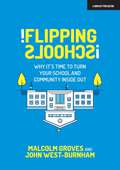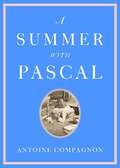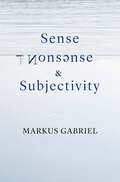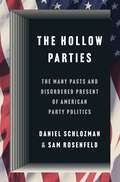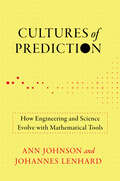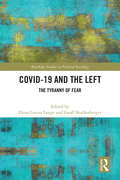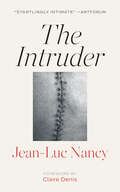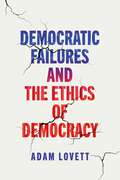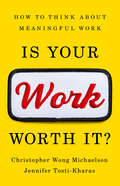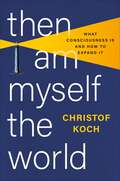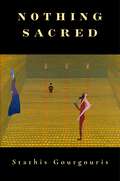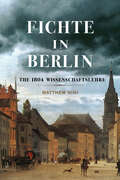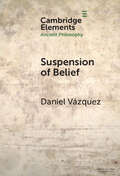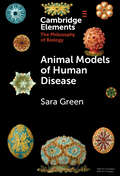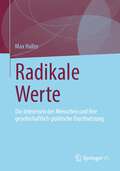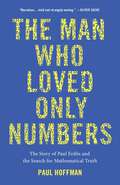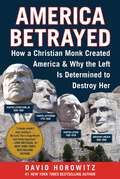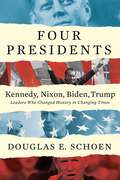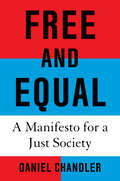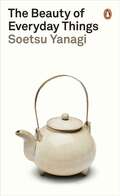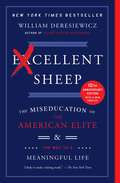- Table View
- List View
Freedom in Your Relationship with Food: An Everyday Guide (Freedom In Your Relationship With Food Ser.)
by Myra LewinThe Rationality Project: Across the Millennia
by Lantz MillerRationality has been philosophers’ concern stretching back to ancient times. But just what is rationality? In trying to answer this question, rationality is found to be more complex than supposed. This book investigates this supposition and thereby aspires to bring together the facets of the peculiar phenomenon that is rationality. Rationality is shown to be both more complex than presumed and yet more accessible than many may have feared. One argument concedes the common assumption that those interested in rationality need only rely on intuitions about this phenomenon. Yet, even moderate research reveals the concept’s profound fuzziness. This book aims to set forth a theory, explanation, and unification of the kindred and disparate understandings of this elusive concept, rationality.
Neuro-ProsthEthics: Ethical Implications of Applied Situated Cognition (Techno:Phil – Aktuelle Herausforderungen der Technikphilosophie #9)
by Jan-Hendrik Heinrichs Birgit Beck Orsolya FriedrichThe volume focusses on the ethical dimensions of the technological scaffold embedding human thought and action, which has been brought to attention of the cognitive sciences by situated cognition theories. There is a broad spectrum of technologies co-realising or enabling and enhancing human cognition and action, which vary in the degree of bodily integration, interactivity, adaptation processes, of reliance and indispensability etc. This technological scaffold of human cognition and action evolves rapidly. Some changes are continuous, some are eruptive. Technologies that use machine learning e.g. could represent a qualitative leap in the technological scaffolding of human cognition and actions. The ethical consequences of applying situated cognition theories to practical cases had yet to find adequate attention and are elucidated in this volume.
Work, Inheritance, and Deserts in Joseph Conrad’s Fiction
by Evelyn Tsz ChanThis book focuses on the complex relationships between inheritance, work, and desert in literature. It shows how, from its manifestation in the trope of material inheritance and legacy in Victorian fiction, “inheritance” gradually took on additional, more modern meanings in Joseph Conrad’s fiction on work and self-making. In effect, the emphasis on inheritance as referring to social rank and wealth acquired through birth shifted to a focus on talent, ability, and merit, often expressed through work.The book explores how Conrad’s fiction engaged with these changing modes of inheritance and work, and the resulting claims of desert they led to. Uniquely, it argues that Conrad’s fiction critiques claims of desert arising from both work and inheritance, while also vividly portraying the emotional costs and existential angst that these beliefs in desert entailed. The argument speaks to and illuminates today’s debates on moral desert arising from work and inheritance, in particular from meritocratic ideals. Its new approach to Conrad’s works will appeal to students and scholars of Conrad and literary modernism, as well as a wider audience interested in philosophical and social debates on desert deriving from inheritance and work.
Flipping Schools: Why it's time to turn your school and community inside out
by John West Burnham Malcolm GrovesThis brilliant book, focused on the education of the most vulnerable and disadvantaged children, offers a radical critique of traditional approaches to school improvement. The text argues for a movement away from the focus on social mobility to placing equity at the heart of school leadership. It suggests moving from improvement to social justice through a re-examination of the school's role in relation to its communities. The book is evidence-based and combines a focus on moral leadership with strategies to turn principle into practice.
A Summer with Pascal
by Antoine CompagnonFrom an eminent scholar, a spirited introduction to one of the great polymaths in the history of Europe.Blaise Pascal (1623–1662) is best known in the English-speaking world for his contributions to mathematics and physics, with both a triangle and a law in fluid mechanics named after him. Meanwhile, the classic film My Night at Maud’s popularized Pascal’s wager, an invitation to faith that has inspired generations of theologians. Despite the immensity of his reputation, few read him outside French schools. In A Summer with Pascal, celebrated literary critic Antoine Compagnon opens our minds to a figure somehow both towering and ignored.Compagnon provides a bird’s-eye view of Pascal’s life and significance, making this volume an ideal introduction. Still, scholars and neophytes alike will profit greatly from his masterful readings of the Pensées—a cornerstone of Western philosophy—and the Provincial Letters, in which Pascal advanced wry theological critiques of his contemporaries. The concise, taut chapters build upon one another, easing into writings often thought to be forbidding and dour. With Compagnon as our guide, these works are not just accessible but enchanting.A Summer with Pascal brings the early modern thinker to life in the present. In an age of profound existential doubt and assaults on truth and reason, in which religion and science are so often crudely opposed, Pascal’s sophisticated commitment to both challenges us to meet the world with true intellectual vigor.
Sense, Nonsense, and Subjectivity
by Markus GabrielA leading German philosopher offers his most ambitious work yet on the nature of knowledge, arguing that being wrong about things defines the human condition.For millennia, philosophers have dedicated themselves to advancing understanding of the nature of truth and reality. In the process they have amassed a great deal of epistemological theory—knowledge about knowledge. But negative epistemological phenomena, such as ignorance, falsity, illusion, and delusion, are persistently overlooked. This is surprising given that we all know how fallible humans are.Sense, Nonsense, and Subjectivity replies with a theory of false thought, demonstrating that being wrong about things is part and parcel of subjectivity itself. For this reason, knowledge can never be secured without our making claims that can always, in principle, be wrong. Even in successful cases, where we get something right and thereby gain knowledge, the possibility of failure lingers with us. Markus Gabriel grounds this argument in a novel account of the relationship between sense, nonsense, and subjectivity—phenomena that hang together in the temporal unfolding of our cognitive lives.While most philosophers continue to theorize subjectivity in terms of conscious self-representation and the supposedly infallible grip we have on ourselves as thinkers, Sense, Nonsense, and Subjectivity addresses the age-old Platonic challenge to understand situations in which we do not get reality right. Adding a stimulating perspective on epistemic failures to the work of New Realism, Gabriel addresses long-standing ontological questions in an age where the line between the real and the fake is increasingly blurred.
The Hollow Parties: The Many Pasts and Disordered Present of American Party Politics (Princeton Studies in American Politics: Historical, International, and Comparative Perspectives #202)
by Daniel Schlozman Sam RosenfeldA major history of America's political parties from the Founding to our embittered presentAmerica&’s political parties are hollow shells of what they could be, locked in a polarized struggle for power and unrooted as civic organizations. The Hollow Parties takes readers from the rise of mass party politics in the Jacksonian era through the years of Barack Obama and Donald Trump. Today&’s parties, at once overbearing and ineffectual, have emerged from the interplay of multiple party traditions that reach back to the Founding.Daniel Schlozman and Sam Rosenfeld paint unforgettable portraits of figures such as Martin Van Buren, whose pioneering Democrats invented the machinery of the mass political party, and Abraham Lincoln and other heroic Republicans of that party&’s first generation who stood up to the Slave Power. And they show how today&’s fractious party politics arose from the ashes of the New Deal order in the 1970s. Activists in the wake of the 1968 Democratic National Convention transformed presidential nominations but failed to lay the foundations for robust, movement-driven parties. Instead, modern American conservatism hollowed out the party system, deeming it a mere instrument for power.Party hollowness lies at the heart of our democratic discontents. With historical sweep and political acuity, The Hollow Parties offers powerful answers to pressing questions about how the nation&’s parties became so dysfunctional—and how they might yet realize their promise.
Cultures of Prediction: How Engineering and Science Evolve with Mathematical Tools (Engineering Studies)
by Ann Johnson Johannes LenhardA probing examination of the dynamic history of predictive methods and values in science and engineering that helps us better understand today&’s cultures of prediction.The ability to make reliable predictions based on robust and replicable methods is a defining feature of the scientific endeavor, allowing engineers to determine whether a building will stand up or where a cannonball will strike. Cultures of Prediction, which bridges history and philosophy, uncovers the dynamic history of prediction in science and engineering over four centuries. Ann Johnson and Johannes Lenhard identify four different cultures, or modes, of prediction in the history of science and engineering: rational, empirical, iterative-numerical, and exploratory-iterative. They show how all four develop together and interact with one another while emphasizing that mathematization is not a single unitary process but one that has taken many forms.The story is not one of the triumph of abstract mathematics or technology but of how different modes of prediction, complementary concepts of mathematization, and technology coevolved, building what the authors call &“cultures of prediction.&” The first part of the book examines prediction from early modernity up to the computer age. The second part probes computer-related cultures of prediction, which focus on making things and testing their performance, often in computer simulations. This new orientation challenges basic tenets of the philosophy of science, in which scientific theories and models are predominantly seen as explanatory rather than predictive. It also influences the types of research projects that scientists and engineers undertake, as well as which ones receive support from funding agencies.
COVID-19 and the Left: The Tyranny of Fear (Routledge Studies in Political Sociology)
by Elena Louisa Lange Geoff ShullenbergerThe COVID-19 pandemic and the measures introduced to purportedly contain its spread have wrought an unprecedented global social transformation.Authoritarian measures such as lockdowns, vaccine mandates, and the enforced wearing of facemasks, have led to a biopolitical disenfranchisement of human rights and the encroachment of state and corporate directives onto private lives. By supporting these measures, the left has lost sight of its traditional critique of capital, the state, and class society and has instead reinforced existing power structures in the name of ‘saving lives’. In doing so, the left has contributed to widespread suffering, especially among the ‘vulnerable’ groups in society the measures claimed to protect, particularly children, the elderly, and the poor.COVID-19 and the Left explores why the left has departed from its self-understanding as a critical force against state power, unfettered capital accumulation, the digital transformation, biopolitics, and a politics of social discrimination, and instead has largely assumed a stance in line with the neoliberal consensus. In particular, the essays in this collection explore the role of fear, panic, and psychological blackmailing as a tool of domination in late capitalist society and consider whether the left has been a victim, or an active perpetrator, of a ‘tyranny of fear’.Drawing upon approaches from various disciplines and interrogating shibboleths on the left and right, the essays in this volume consider the ideological, sociocultural, and economic implications of the historical rupture that the COVID-19 pandemic presents and instead argue for a counter-narrative to fear and its harmful consequences. This provocative collection will be of considerable interest to those with an interest in the contemporary left and the impact of the COVID-19 pandemic.
The Intruder
by Jean-Luc NancyIn 1991, Jean-Luc Nancy's heart gave out. In one of the first such procedures in France, a stranger's heart was grafted into his body. Numerous complications followed, including more surgeries and lymphatic cancer. The procedure and illnesses he endured revealed to him, in a more visceral way than most of us ever experience, the strangeness of bodily existence itself and surviving the stranger within him. During this same period, Europe began closing its borders to those seeking refuge from war and poverty. Alarmed at this trend and drawn to a highly intimate form of strangeness with which he had been living for years, Nancy set out in The Intruder to articulate how intrusion—whether of a body or a border—is not antithetical to one’s identity but constitutive of it. In 2004, Claire Denis adapted The Intruder into a film already hailed among the most important of our century. This edition includes Nancy’s and Denis’s accounts of turning philosophy into film and the text of a shorter collaboration between the two of them. Throughout, Nancy and Denis push us to recognize that to truly welcome strangers means a constant struggle against exoticism, enforced assimilation, and confidence in our own self-identity.
Democratic Failures and the Ethics of Democracy (Democracy, Citizenship, and Constitutionalism)
by Adam LovettIn Democratic Failures and the Ethics of Democracy, political philosopher Adam Lovett argues that when it comes to democratic ideals, the United States is a failed democracy. Specifically, he contends that American democracy has failed to advance equality and self-rule for its citizens—qualities he identifies as essential components of democracy’s intrinsic value. Drawing on rich empirical research, Lovett applies original philosophical analysis to reveal real-world democratic failures and evaluate their philosophical and ethical consequences.His research locates democratic failures at both the level of political elites and at the level of the masses. At the elite level, elected officials shape policy to prioritize the interests of their supporters, where wealthy individuals and corporations are the most influential. At the mass level, ordinary citizens are motivated to vote not to introduce specific policies but by party identification. By mapping how these failures erode equality and self-rule, he demonstrates that they in fact undermine the ethics of democracy itself. After all, Lovett argues, when a state fails to represent ordinary citizens, those ordinary citizens are not morally obligated to follow the laws of the state.Because the state fails to achieve democratic values in any meaningful way, its claim to political authority and legitimacy is diminished. However, Lovett does not conclude that American democracy is doomed—he instead proposes solutions from voting only on referendums to delegating aspects of public policy to unelected experts without partisan obligation. These reforms are vital for compelling the state to act on behalf of all citizens, not just the partisan or the powerful. Of interest to political scientists and political philosophers alike, Democratic Failures and the Ethics of Democracy sheds light on an increasingly troubled democratic ethos and proposes solutions for how ordinary citizens can work to save it.
Is Your Work Worth It?: How to Think About Meaningful Work
by Christopher Wong Michaelson Jennifer Tosti-KharasWhat is work that&’s worth doing in a life worth living? A revealing exploration of the questions we ask and the stories we tell about our work. According to recent studies, barely a third of American workers feel &“engaged&” at work, and for many people around the world, happiness is lowest when earning power is highest. After a global pandemic that changed why, how, and what people do for a living, many workers find themselves wondering what makes their daily routine worthwhile. In Is Your Work Worth It?, two professors – a philosopher and organizational psychologist – investigate the purpose of work and its value in our lives. The book explores vital questions, such as: Should you work for love or money? When and how much should you work? What would make life worth living in a world without work? What kind of mark will your work leave on the world? This essential book combines inspiring and harrowing stories of real people with recent scholarship, ancient wisdom, arts, and literature to help us clarify what worthy work looks like, what tradeoffs are acceptable to pursue it, and what our work can contribute to society.
Then I Am Myself the World: What Consciousness Is and How to Expand It
by Christof Koch"Deeply personal and infinitely digestible, Then I Am Myself the World is a remarkable must-read for anyone interested in knowing their mind.&”―Judson Brewer MD, PhD, New York Times–bestselling author of Unwinding Anxiety The world&’s leading investigator of consciousness argues that by understanding what consciousness does—cause change in the world—we can understand its origins and its future In Then I Am Myself the World, Christof Koch explores the only thing we directly experience: consciousness. At the book&’s heart is integrated-information theory, the idea that the essence of consciousness is the ability to exert causal power over itself, to be an agent of change. Koch investigates the physical origins of consciousness in the brain and how this knowledge can be used to measure consciousness in natural and artificial systems. Enabled by such tools, Koch reveals when and where consciousness exists, and uses that knowledge to confront major social and scientific questions: When does a fetus first become self-aware? Can psychedelic and mystical experiences transform lives? What happens to consciousness in near-death experiences? Why will generative AI ultimately be able to do the very thing we can do, yet never feel any of it? And do our experiences reveal a single, objective reality? This is an essential book for anyone who seeks to understand ourselves and the future we are creating.
Nothing Sacred
by Stathis GourgourisNothing Sacred makes a bold call for reconceptualizing the projects of humanism and democracy as creative sources of emancipatory meaning, from the immediate political sphere to the farthest reaches of planetary ways of living.Restaging Aristotle’s classic notion of the “political animal” in broad historical and geographical frames, Stathis Gourgouris explores the autopoietic capacities of human-being in society, while developing new frameworks of anticolonial humanism and radical democracy as the only worthy adversaries of neoliberal capitalism.This reconfigured anthropological horizon enables us to imagine new ways of living by learning to pursue a radical politics of autonomy and a planetary vision that upholds life-affirming coexistence and equal sharing against the fetishism of hierarchy and servitude, money and technologic, sovereignty and endless growth.Written with daring, erudition, and anarchic contestation, this book seeks the political through a poetic perspective. Nothing Sacred rejects niche thinking in the academy and engages a vast domain of reflections on the problem of human-being in today’s dismal world.
Fichte in Berlin: The 1804 Wissenschaftslehre (McGill-Queen’s Philosophy of Religion Series #1)
by Matthew NiniWhen the celebrated German philosopher Johann Gottlieb Fichte lost his position at the University of Jena and moved to Berlin, it looked as if his career was over. In 1799 Berlin had no university, and Fichte was consigned to lecturing in his home.In Fichte in Berlin Matthew Nini breaks with scholarly consensus, arguing it was there that Fichte finally reached maturity, and the only way to understand Fichte’s mature philosophy is to perform it for oneself. The book focuses on the philosopher’s 1804 lectures on the Wissenschaftslehre – an untranslatable neologism for his theories on the pursuit of insight – claiming that they are one of the most exemplary versions of the philosophical project that Fichte reconfigured some seventeen times throughout his life. While the 1804 lectures offer a more robust approach, they remain faithful to the insight at the heart of the original philosophy. Fichte’s work always emphasized the practical over the theoretical, and his 1804 work goes even further: to think with Fichte is to bring one’s own philosophy to life. Nini guides the reader step by step through the complex arguments Fichte made in 1804 and goes on to examine some of his other works produced in their wake, arguing that Fichte’s output from 1804 to 1806, his first Berlin period, forms an organic whole.Fichte in Berlin is not only an introduction to Fichte’s later philosophy, but also an original philosophical work that makes a unique contribution to the study of German Idealism.
Suspension of Belief (Elements in Ancient Philosophy)
by null Daniel VazquezThis Element offers a systematic outline of ancient conceptions and uses of suspension of belief (understood broadly) while engaging with contemporary philosophy. It discusses the notion of epochē ('suspension of judgement') and other related terms, like aporia, aphasia, paradox, hypothesis, agnosticism, and Socratic wisdom. It examines the Academic and Pyrrhonian sceptics and some of their arguments and strategies for suspension. It also includes the use and conditions for suspension of belief in other philosophers like Socrates, Plato, Aristotle, the Stoics, Plotinus, Protagoras, and Democritus. The Element is divided into four thematic sections, each addressing one of the following questions: What is suspension of belief? When does it arise? What could its scope be? And what are its practical and moral implications?
Animal Models of Human Disease (Elements in the Philosophy of Biology)
by null Sara GreenThe crucial role of animal models in biomedical research calls for philosophical investigation of how and whether knowledge about human diseases can be gained by studying other species. This Element delves into the selection and construction of animal models to serve as preclinical substitutes for human patients. It explores the multifaceted roles animal models fulfil in translational research and how the boundaries between humans and animals are negotiated in this process. The book also covers persistent translational challenges that have sparked debates across scientific, philosophical, and public arenas regarding the limitations and future of animal models. Among the are persistent tensions between standardization and variation in medicine, as well as between strategies aiming to reduce and recapitulate biological complexity. Finally, the book examines the prospects of replacing animal models with animal-free methods. The Element demonstrates why animal modeling should be of interest to philosophers, social scientists, and scientists alike.
Radikale Werte: Die Interessen der Menschen und ihre gesellschaftlich-politische Durchsetzung
by Max HallerEin berühmter, immer wieder zitierter Satz von Max lautet: „Interessen (materielle und ideelle), nicht: Ideen, beherrschen unmittelbar das Handeln der Menschen. Aber: die ‚Weltbilder‘, welche durch ‚Ideen‘ geschaffen wurden, haben sehr oft als Weichensteller die Bahnen bestimmt, in denen die Dynamik der Interessen das Handeln fortbewegte.“ Die neuere Soziologie ist diesem Grundsatz allerdings nicht gerecht geworden. Werte und ihre Wirkung werden entweder als gegeben vorausgesetzt (so bei Talcott Parsons) oder überhaupt als irrelevant betrachtet (so in der Rational Choice- und Systemtheorie). Die umfangreiche, empirische Werteforschung hat vielfältige Ergebnisse erbracht, blieb jedoch weitgehend ohne theoretisches Fundament, sodass ihre Befunde vielfach anfechtbar sind. Weber selbst gab im Hinblick auf die Frage nach der Relevanz der Werte nur unbefriedigende Antworten: Die Entscheidung für bestimmte Werte sei eine rein individuelle Angelegenheit und zwischen den verschiedenenWerten gebe es einen unversöhnlichen Kampf. Im vorliegenden Buch wird diese Problematik erstmals in der deutschen Soziologie umfassend untersucht und es wird dafür (u.a. im Anschluss an Autoren wie Immanuel Kant, George H. Mead und Raymond Boudon), eine neue, konstruktive und erklärungsstarke Lösung gefunden. Unter Zuhilfenahme von Überlegungen aus Philosophie, Sozialtheorie und empirischer Sozialforschung sowie unter Einbeziehung historischer Kämpfe zur Anerkennung und Durchsetzung der Werte kann man feststellen, dass es gesellschaftliche Grundwerte gibt, dass deren Anzahl klar bestimmbar ist und dass zwischen ihnen keineswegs Konflikt, sondern Komplementarität besteht. Mit diesen Thesen und Befunden kann dieses Buch als neues soziologisches Standardwerk angesehen werden. Es hat auch für Vertreter vieler anderer geistes- und sozialwissenschaftlicher Disziplinen grundlegende Bedeutung.
The Man Who Loved Only Numbers: The Story of Paul Erdos and the Search for Mathematical Truth
by Paul Hoffman"A funny, marvelously readable portrait of one of the most brilliant and eccentric men in history." --The Seattle Times Paul Erdos was an amazing and prolific mathematician whose life as a world-wandering numerical nomad was legendary. He published almost 1500 scholarly papers before his death in 1996, and he probably thought more about math problems than anyone in history. Like a traveling salesman offering his thoughts as wares, Erdos would show up on the doorstep of one mathematician or another and announce, "My brain is open." After working through a problem, he'd move on to the next place, the next solution. Hoffman's book, like Sylvia Nasar's biography of John Nash, A Beautiful Mind, reveals a genius's life that transcended the merely quirky. But Erdos's brand of madness was joyful, unlike Nash's despairing schizophrenia. Erdos never tried to dilute his obsessive passion for numbers with ordinary emotional interactions, thus avoiding hurting the people around him, as Nash did. Oliver Sacks writes of Erdos: "A mathematical genius of the first order, Paul Erdos was totally obsessed with his subject--he thought and wrote mathematics for nineteen hours a day until the day he died. He traveled constantly, living out of a plastic bag, and had no interest in food, sex, companionship, art--all that is usually indispensable to a human life."The Man Who Loved Only Numbers is easy to love, despite his strangeness. It's hard not to have affection for someone who referred to children as "epsilons," from the Greek letter used to represent small quantities in mathematics; a man whose epitaph for himself read, "Finally I am becoming stupider no more"; and whose only really necessary tool to do his work was a quiet and open mind. Hoffman, who followed and spoke with Erdos over the last 10 years of his life, introduces us to an undeniably odd, yet pure and joyful, man who loved numbers more than he loved God--whom he referred to as SF, for Supreme Fascist. He was often misunderstood, and he certainly annoyed people sometimes, but Paul Erdos is no doubt missed. --Therese Littleton
America Betrayed: How a Christian Monk Created America & Why the Left Is Determined to Destroy Her
by David HorowitzAmerica is now engulfed in a crisis that goes to the very foundations of its democracy. To destroy Americans&’ pride in their heritage and undermine their will to defend it, the attacks on America&’s heritage begin with malicious slanders intended to turn the American dream of equality and freedom into a &“white supremacist&” nightmare. We are told America, from its inception, has been a &“racist&” nation that treats minorities as less than human. We are told America deserves to be destroyed. This destructive lie is now the official doctrine of the Biden White House, the &“woke&” Pentagon, the Democratic Senate, and the curricula of American schools. America Betrayed restores the true history of America&’s achievements and its role as a beacon of freedom. Framed by an account of Martin Luther&’s history and ideas, David Horowitz demonstrates that racial progress in America originates not from Leftist policy but from its founding ideals. America Betrayed is a history and a manifesto focused on the current war to save our country and restore the dignity and freedom of the individual.
FOUR PRESIDENTS Kennedy, Nixon, Biden, Trump: Leaders Who Changed History in Changing Times
by Douglas E SchoenA Simon & Schuster eBook. Simon & Schuster has a great book for every reader.
Free and Equal: A Manifesto for a Just Society
by Daniel ChandlerImagine: You are designing a society, but you don't know who you'll be within it—rich or poor, man or woman, gay or straight. What would you want that society to look like? This is the revolutionary thought experiment proposed by the twentieth century's greatest political philosopher, John Rawls. As economist and philosopher Daniel Chandler argues in this hugely ambitious and exhilarating manifesto, it is by rediscovering Rawls that we can find a way out of the escalating crises that are devastating our world today.&“A beautifully written and compelling argument that Rawlsian political philosophy can heal our broken societies.&”—Sir Angus Deaton, winner of the Nobel Prize in Economics • "This book will meet a very important need.&”—Amartya Sen, winner of the Nobel Prize in Economics"Intellectually rigorous and full of hope.&”—Zadie Smith, bestselling author of White Teeth and The Fraud • &“A must-read!&”—Thomas Piketty, bestselling author of Capital in the Twenty-First CenturyTaking Rawls's humane and egalitarian liberalism as his starting point, Chandler builds a powerful case for a new progressive agenda that would fundamentally reshape our societies for the better. He shows how we can protect free speech and transcend the culture wars; get money out of politics; and create an economy where everyone has the chance to fulfil their potential, where prosperity is widely shared, and which operates within the limits of our finite planet.This is a book brimming with hope and possibility—a galvanizing alternative to the cynicism that pervades our politics. Free and Equal has the potential to offer a touchstone for a modern, egalitarian liberalism for many years to come, cementing Rawls's place in political discourse, and firmly establishing Chandler as a vital new voice for our time.
The Beauty Of Everyday Things
by Soetsu YanagiThe Japanese philosopher and aesthete's definitive, hugely influential exposition of his philosophy of folkcrafts, setting out the hallmarks of Japanese design as we know it today: anonymity, quality, simplicity and honesty—and, of course, wabi-sabi, the beauty of imperfection A Penguin Classic Our lives are filled with objects. Everyday things used in everyday settings, they are our constant companions. As such, writes Soetsu Yanagi, they should be made with care and built to last, treated with respect and even affection. They should be natural and simple, sturdy and safe—an aesthetic fulfillment of our practical needs. They should, in short, be things of beauty. Long revered as the authority on craftsmanship and Japanese aesthetics, Yanagi devoted his life and writing to defend the value of craft. In an age of feeble and ugly machine-made things, The Beauty of Everyday Things is a call for each of us to deepen our relationship with the objects that surround us. Inspired by the work of the simple artisans Yanagi encountered on his lifelong travels through Japan and Korea, this now-classic book is a heartfelt defence of modest, honest, handcrafted objects, from traditional teacups to jars to paper—objects that exemplify the beauty of everyday things.
Excellent Sheep: The Miseducation of the American Elite and the Way to a Meaningful Life
by William DeresiewiczA groundbreaking manifesto about what our nation&’s top schools should be—but aren&’t—providing: &“The ex-Yale professor effectively skewers elite colleges, their brainy but soulless students (those &‘sheep&’), pushy parents, and admissions mayhem&” (People).As a professor at Yale, William Deresiewicz saw something that troubled him deeply. His students, some of the nation&’s brightest minds, were adrift when it came to the big questions: how to think critically and creatively and how to find a sense of purpose. Now he argues that elite colleges are turning out conformists without a compass. Excellent Sheep takes a sharp look at the high-pressure conveyor belt that begins with parents and counselors who demand perfect grades and culminates in the skewed applications Deresiewicz saw firsthand as a member of Yale&’s admissions committee. As schools shift focus from the humanities to &“practical&” subjects like economics, students are losing the ability to think independently. It is essential, says Deresiewicz, that college be a time for self-discovery when students can establish their own values and measures of success in order to forge their own paths. He features quotes from real students and graduates he has corresponded with over the years, candidly exposing where the system is broken and offering clear solutions on how to fix it. &“Excellent Sheep is likely to make…a lasting mark….He takes aim at just about the entirety of upper-middle-class life in America….Mr. Deresiewicz&’s book is packed full of what he wants more of in American life: passionate weirdness&” (The New York Times).

